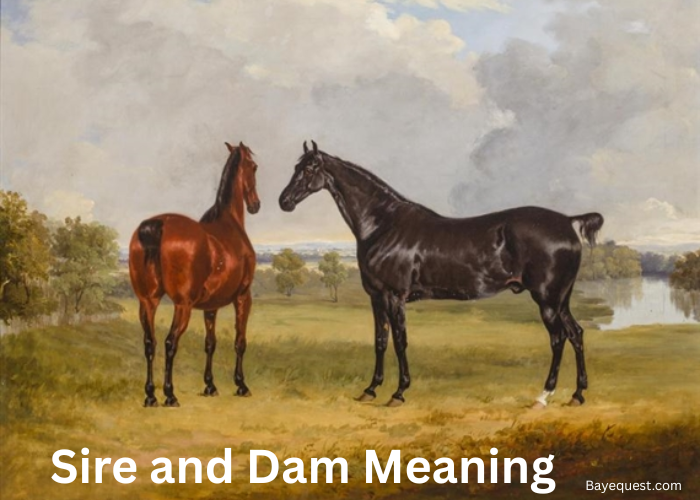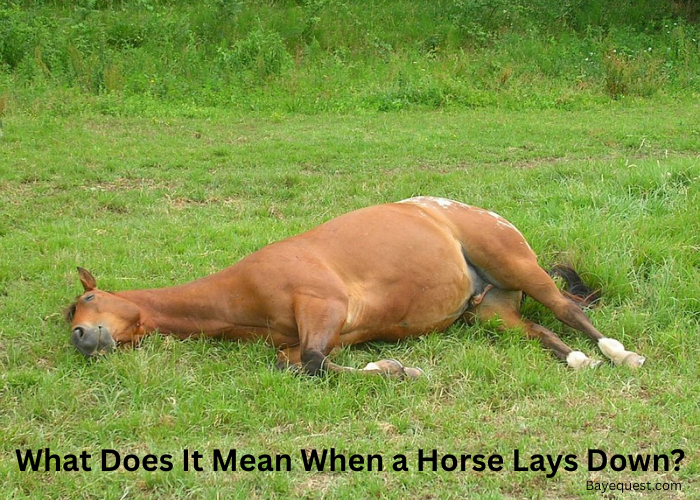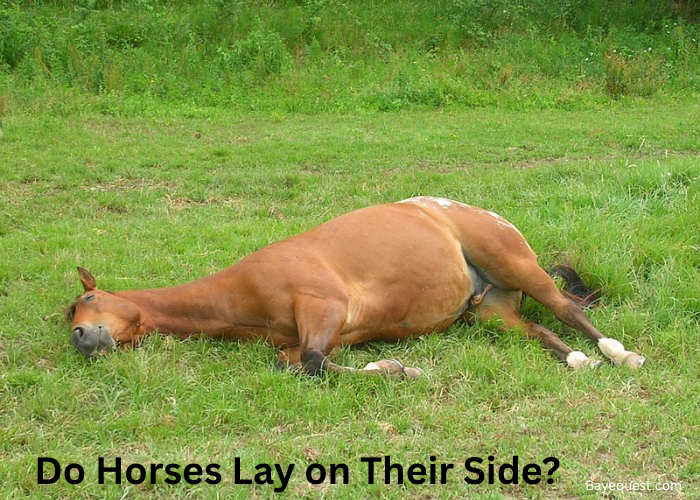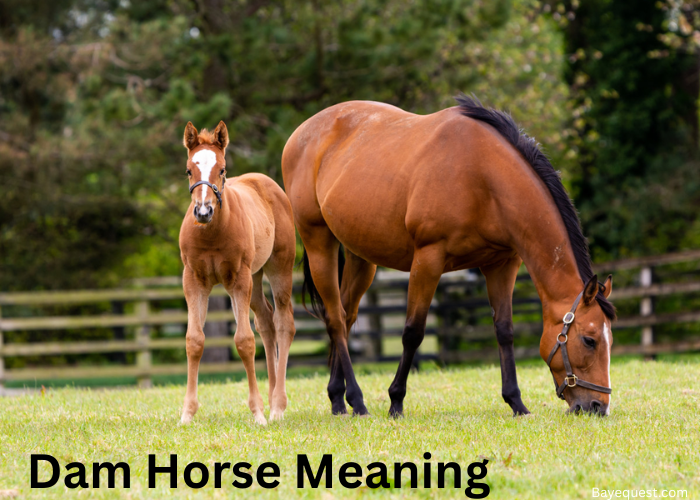Quidding in horses might not be the first thing that comes to mind when you think about their health. But it’s a problem that’s hard to miss once you know the signs.
Horses start dropping partially chewed food, struggling to eat, and can even lose weight. It’s not just about messy eating – it could signal an issue that needs attention.
In this blog, we’ll dive into what quidding is, why it happens, and how you can help your horse get back to eating comfortably.
Let’s get started.
What is Quidding in Horses? Key Takeaway
Quidding in horses is when a horse chews its feed but drops partially chewed food from its mouth. This often happens due to dental issues, mouth injuries, or age-related wear. Quidding can lead to weight loss and poor nutrition. Regular dental care and soft feed can help manage and prevent quidding.
What is a Quid?
A quid is a ball of partially chewed food that a horse drops from its mouth instead of swallowing. This occurs when the horse has difficulty chewing properly, often due to dental issues, or age-related wear.
Horses experiencing discomfort while chewing will form the food into a ball, known as a quid, and drop it on the ground. Quidding can be a sign of pain or an inability to grind food effectively.
How Does Quidding Occur?
Quidding happens when a horse has trouble chewing food properly. It often starts with dental issues like sharp edges on teeth, missing teeth, or misaligned jaws.
As the horse chews, the feed doesn’t get broken down enough, and instead of swallowing it, the horse drops partially chewed food from its mouth.
This can also happen if the horse has mouth injuries, infections, or even age-related dental wear.
Over time, the horse struggles more and more to chew and digest, leading to weight loss and discomfort.
How Quidding Impacts Digestion
Quidding can significantly affect a horse’s digestion. When a horse drops partially chewed food, it means the feed isn’t broken down enough for proper digestion.
Chewing is the first step in the digestive process, helping to grind food and mix it with saliva, which starts breaking down the nutrients.
When quidding occurs, the horse may swallow larger, improperly chewed pieces, making it harder for the stomach and intestines to digest the food.
This can lead to poor nutrient absorption, weight loss, and even digestive problems like colic.
10 Causes of Quidding in Horses
Quidding in horses can happen for a variety of reasons, and understanding the root cause is key to finding the right solution. Let’s explore the main causes behind this behavior.
1. Dental issues
Dental issues are a leading cause of quidding because they make chewing difficult and painful for the horse. Let’s break down each issue:
Sharp enamel points
As horses chew, their teeth naturally wear down, but sometimes sharp points can form on the edges. These sharp points can cut into the horse’s cheeks or tongue, causing discomfort.
When it hurts to chew, the horse may start to drop food to avoid the pain, leading to quidding.
Gaps between teeth
Over time, horses can develop spaces between their teeth. These gaps can trap food, which can be uncomfortable or even painful.
When food gets stuck, the horse might not be able to chew it properly, leading to quidding. They’ll drop partially chewed feed rather than swallow it.
Fractured teeth
A fractured or broken tooth is another issue that can cause quidding. Chewing on a broken tooth is painful, so the horse will avoid putting pressure on that side of its mouth.
This uneven chewing leads to dropping food, as the horse can’t properly grind its feed.
See also: Wolf Teeth in Horses.
2. Oral soft tissue issues
Oral soft tissue issues can also cause quidding in horses. The soft tissues in the mouth, like the gums, tongue, and cheeks, are sensitive.
If these areas get injured or inflamed, it can make chewing very painful. This might happen due to cuts, ulcers, or infections.
When the soft tissue is sore, the horse will struggle to keep food in its mouth and chew comfortably. As a result, it drops partially chewed feed, leading to quidding.
3. Periodontal disease
Periodontal disease is another cause of quidding in horses. It affects the tissues that support the teeth, making it hard for the horse to chew without pain.
Here’s how it plays out:
Gingivitis
Gingivitis is the early stage of periodontal disease and involves inflammation of the gums. It’s caused by a buildup of food and bacteria around the teeth.
This inflammation makes the gums tender and can cause the horse to chew awkwardly. When it hurts to chew, the horse will often drop food, leading to quidding.
If left untreated, gingivitis can progress to periodontitis, making the problem worse.
Periodontitis
Periodontitis is a serious condition where the tissue around the teeth becomes infected and inflamed. This can lead to the teeth loosening or even falling out.
As the disease progresses, chewing becomes painful, and the horse may start quidding to avoid the discomfort.
The gums may also recede, exposing more of the tooth and making it harder for the horse to properly grind its feed.
4. Mouth blisters and lesions
Mouth blisters and lesions can also lead to quidding in horses. These painful sores can form on the tongue, gums, or inner cheeks.
When a horse has blisters or lesions, every bite becomes uncomfortable. The irritation makes it difficult for the horse to chew properly, so it may start dropping food to avoid the pain.
These sores can be caused by infections, allergies, or even rough feed. If not treated, the horse will continue to struggle with eating, leading to quidding and potential weight loss.
5. Vesicular stomatitis
Vesicular stomatitis is a viral disease that can cause painful sores and blisters in a horse’s mouth, leading to quidding.
When a horse is infected, vesicles or blisters form on the tongue, lips, and inside the mouth.
These blisters can burst, turning into open sores, which make eating extremely uncomfortable. As a result, the horse will drop feed because chewing becomes too painful.
Vesicular stomatitis is also highly contagious. Isolate affected horses and seek veterinary treatment immediately you notice an infected horse.
6. Temporomandibular Joint (TMJ) Disorder
TMJ Disorder in horses affects the jaw joint, making chewing difficult and uncomfortable.
The temporomandibular joint connects the lower jaw to the skull, allowing the horse to open and close its mouth.
When this joint becomes inflamed or misaligned, it can cause pain during movement, especially when chewing.
Horses with TMJ disorder may begin quidding because the pain limits their ability to chew and grind their food.
They drop partially chewed feed as a result. Dental care and joint therapy help relieve the pain and restore proper chewing.
7. Abnormal retention in young horses
Abnormal retention in young horses refers to the improper shedding of baby teeth, also known as deciduous teeth.
As young horses grow, their baby teeth should naturally be replaced by permanent teeth.
However, sometimes these baby teeth don’t fall out as they should. This causes discomfort and dental issues.
When a retained baby tooth is still in place, it can interfere with the alignment of the permanent teeth, making chewing painful and awkward.
This can lead to quidding, as the horse struggles to chew properly.
Read also: Do Horse Teeth Ever Stop Growing?
8. Age-related wear and tear
Age-related wear and tear is a common cause of quidding in older horses. Over time, a horse’s teeth naturally wear down from years of grinding feed.
This wear can lead to uneven surfaces, missing teeth, or even smooth teeth that no longer properly break down food.
As a result, older horses may struggle to chew, causing them to drop food from their mouth.
This quidding often leads to weight loss or poor nutrition if not managed.
9. Dysphagia
Dysphagia is a condition where a horse has difficulty swallowing, which can lead to quidding. This issue can arise from problems in the throat, esophagus, or nervous system.
Horses with dysphagia might start to chew their food but then struggle to swallow it, causing them to drop it instead.
This condition can be triggered by infections, nerve damage, or muscle disorders.
10. Poor feed quality
Poor feed quality can also lead to quidding in horses. If the feed is too coarse, moldy, or full of tough stems, it can be difficult for the horse to chew and digest.
Horses may find it uncomfortable to break down rough or hard feed, leading them to drop it from their mouths before it’s fully chewed.
Additionally, poor-quality feed can irritate the mouth, making chewing painful.
Always ensure that the feed is soft, clean, and easy to chew, especially for horses with dental issues or sensitive mouths.
Symptoms of Quidding
The symptoms of quidding are easy to spot if you know what to look for. One of the main signs is a horse dropping partially chewed food from its mouth while eating.
You might also notice small piles of chewed hay or grain around their feeding area. Horses that quid may begin to lose weight since they aren’t eating enough.
They could seem hungry but still struggle to chew or finish their food. Other signs include:
- Excessive salivation
- Halitosis
- Head tilting during mastication
- Decreased performance
- Difficulty in prehension
- Weigh loss
- Dental and oral pain
- Horse foaming at mouth
- Reluctance to eat harder feeds
How to Diagnose Quidding
Diagnosing quidding involves a combination of observation and professional examination.
First, you’ll notice the obvious signs, like the horse dropping chewed food or leaving piles of partially chewed feed.
If you spot these, call a veterinarian or an equine dentist. They’ll perform a thorough oral exam, checking for dental issues such as sharp enamel points, fractured teeth, or infections.
Sometimes, the vet may need to sedate the horse for a closer look. They’ll also examine the soft tissues in the mouth, like the gums and cheeks, for sores or lesions.
In some cases, further tests might be done to rule out conditions like TMJ disorder or dysphagia.
A quick diagnosis allows for timely treatment, helping your horse get back to eating normally.
How to Treat and Manage Quidding
Treating and managing quidding starts with addressing the underlying cause.
If dental issues are to blame, an equine dentist can float the teeth to make chewing easier and more comfortable. Regular floating of teeth keeps horses healthy.
For horses with soft tissue injuries, infections, or sores, your vet may recommend antibiotics or other treatments to heal the mouth.
If TMJ disorder or dysphagia is the cause, more specialized care may be needed. This may include joint therapy or other veterinary interventions.
Adjusting the horse’s diet is also important in managing quidding. Offering softer feeds can make chewing easier for horses struggling with dental or jaw problems.
Regular check-ups and monitoring are essential to ensure the issue doesn’t worsen or return.
In cases where quidding is caused by poor feed quality, improve the feed’s texture and cleanliness to help the horse eat comfortably again.
Proper care and diet adjustments can make a big difference in how well your horse eats and maintains a healthy weight.
Prevention of Quidding
Preventing quidding is all about keeping your horse’s teeth healthy and providing the right kind of feed.
Let’s look at a few simple ways to prevent this issue from becoming a problem:
Regular dental check-ups
Getting your horse’s teeth checked regularly is the best way to prevent quidding.
An equine dentist can catch problems like sharp enamel points or loose teeth before they cause discomfort.
A quick float every year keeps the teeth in good shape and helps your horse chew properly.
Feed softer foods
If your horse is older or has dental issues, switch to softer feed. Soaked hay cubes, mashes, or pelleted feeds are easier to chew and less likely to cause problems.
This can make a big difference, especially for older horses with worn-down teeth.
Maintain good hygiene
Keeping the horse’s mouth clean and free from infections is key. Make sure your horse is eating clean, mold-free feed and drinking fresh water.
Clean feed prevents sores, blisters, and mouth infections that can lead to quidding.
Address health issues early
If you notice any signs of quidding, like dropping food or weight loss, call a vet right away.
Catching the problem early can stop it from getting worse and help your horse get back to eating comfortably.
Horse Quidding: Conclusion
Quidding might seem like a minor issue, but it can have a big impact on your horse’s health. Dropping food, losing weight, and struggling to eat are all signs that something isn’t right.
By understanding the causes, from dental problems to feed quality, you can take steps to help your horse get back to eating comfortably.
Regular dental check-ups, proper feed, and early intervention can make all the difference.
If you notice any signs of quidding, don’t wait—get your horse checked out and back on track for a healthy, happy life.








